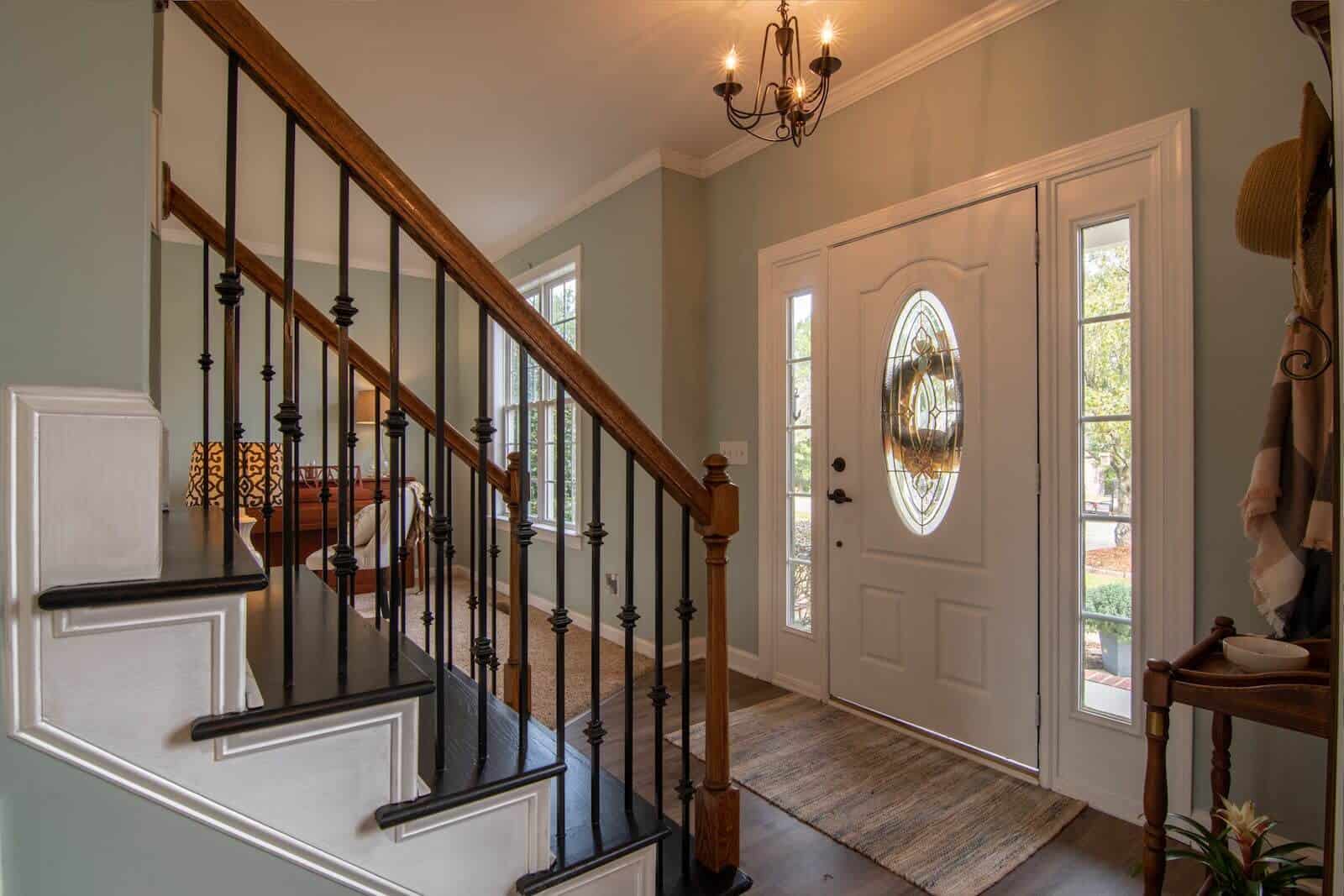Selling your home can be lucrative, but the capital gains tax accompanying it may drastically reduce your earnings and dampen your excitement for selling the property.
If you’re unaware, capital gains tax is the money you must pay from the profit earned from selling assets — including a home, stocks, cryptocurrencies, coin collections or piece of land.

As an illustration, suppose you paid $400,000 for your home and sold it for $600,000, netting a profit of $200,000. On the $200,000, you would be required to pay capital gains tax.
To figure out how much capital gains tax you owe when selling a home, you should deduct the purchase price of your property from the final sale price together with any renovation and selling expenses incurred, including realtor commissions, kitchen and bathroom remodeling costs, attorney fees, and home taxes paid.
Your income tax bracket and the time you’ve owned an asset also determine how much capital gains tax you owe.
If you sold your house before a year had passed since you purchased it, you would pay short-term capital gains taxes, which, depending on your income tax group, could be as high as 37%.
However, if you held the home for a year plus, the profit you make is referred to as long-term capital gain, and you’ll pay a lower tax rate, which is often 15–20%, depending on your income.
So, from the $200,000 profit, you would owe $30,000 to $74,000 in capital gains tax once you sell your house.
This is a substantial amount of money, so I’m sure that like many other home sellers, you’re interested in learning how you might avoid or reduce capital gains tax when selling your house.
Keep reading to find out how you can do this!
Note: If your taxable income for the 2023 tax year is $44,625 or less ($89,250 or lower if you’re married and filing jointly), you’re exempt from paying capital gains tax.
3 Strategies for Avoiding or Reducing Capital Gains Tax When Selling Your House
1. Leverage the Primary Residence Exclusion
This is one of the simplest and most widely used ways to avoid paying capital gain taxes to the Internal Revenue Service (IRS) on a sold property.
To be eligible for the primary residence exclusion, you must have owned and utilized your home as a main residence for at least two of the five years preceding the sale. The two years of residency don’t need to be consecutive, they can be accumulated over time.
The exclusion amount is $250,000 for individual taxpayers and $500,000 for married couples who file taxes together.
Therefore, you won’t incur any capital gains tax if the profit you earn from the sale of your house is below or equal to the primary residence deduction amount, and you’ll only be taxed on the excess if it exceeds the exemption sum.
For instance, if you’re a single taxpayer and sold your house for a profit of $350,000, only $100,000 of that gain will be subject to capital gains taxes ($350,000 profit minus $250,000 IRS exclusion).
Some important details about the principal residence tax exclusion you should know about include:
- If you’re married and file your taxes jointly with your spouse, both of you must have resided in the house you’re selling for at least 24 months during the past five years to claim the $500K primary residence exclusion, even if one of you is the property’s owner.
Consequently, if you just got married and your spouse has been a resident in your house for a year, you’re only qualified for the $250,000 single taxpayer deduction. You can claim the $500K capital gains tax credit for married couples if you put off selling the house until your partner has lived there for the required two years.
- The primary residence exclusion may also be used several times, but only one time every two years.
So, for instance, if you own two homes that you’ve lived in for at least two years and decide to sell both at once, only one can benefit from the $250,000 or $500,000 primary residence tax deduction.
As a result, you might have to pay the entire capital gains tax on one of the homes or wait two years before selling to again take advantage of the primary residence exemption.
- If a widowed taxpayer meets the 2-year ownership and residency requirements, sells their property within two years after the passing of their spouse, and isn’t remarried at the time of the sale, they could be qualified for the $500K principal residence tax exemption provided to married couples.
2. Check if You Qualify for Partial Exclusion of Capital Gains
The majority of Americans can avoid paying capital gains tax by claiming primary residence exclusion because they on average stay in their homes for eight years before deciding to sell them.
However, if you sell your house in under two years, disqualifying you from the principal residence exemption, you could still benefit from a partial exclusion in specific circumstances.
The IRS does provide partial capital gains tax exemptions to people who sell their property for the following reasons:
- A new job that demands they relocate at least 50 miles from their existing residence
- Health issues that force homeowners to move to get, give, or facilitate a diagnosis, treatment, mitigation, or cure for a disease or injury for themselves or a member of their family
- Unexpected events, like the death of a home co-owner, divorce, or a job loss, that leaves a homeowner unable to cover their essential living costs
If you’re eligible for a partial exclusion of capital gains, the value of the exemption depends on how long you owned and occupied the property as your primary residence.
As an illustration, if you sold your home so that you could move to take care of your elderly, ill parents, and you lived in your home for one out of the last five years ahead of the sale, you would have satisfied 50% of the principal residence exclusion use requirement and may claim 50% capital gains exclusion, which is $250,000 for married couples and $125,000 for single taxpayers.
3. Postpone Capital Gains Tax With a 1031 Exchange
The sale of investment properties, such as rentals, is not exempt from capital gains tax, which must be calculated and paid when filing your yearly tax returns.
By using a 1031 exchange, you can delay paying capital gains taxes for years after selling your investment property. This tax strategy only works as long as you use the entire sale proceeds to purchase a similar investment property of equal or greater value within a set time frame.
Following the sale of your property, you’re required by the IRS to find your next real estate investment within 45 days and buy it inside 180 days.
Since you’ll be keeping every dollar from the sale of your rental home and putting it back into a new asset, a 1031 exchange, also known as a like-kind exchange, can help you, as a real estate investor, build your portfolio more quickly.
However, because there are so many rules to follow, executing a 1031 exchange can be complicated. For this reason, it’s crucial to work with an experienced tax advisor or seasoned real estate professional familiar with this tax benefit to avoid missing crucial deadlines and having to pay capital gain taxes.
HomeBuyers of Pittsburgh: The #1 Professional Home Buyer
Are you planning to sell your house and curious about how to minimize your capital gains tax liability? Call Homebuyers of Pittsburgh at 412-444-8914 or send an email to info@urbanpgh.com.
We are a team of seasoned real estate investors with a wealth of knowledge on real estate taxes acquired over 10+ years of purchasing and selling 750+ homes in Pittsburgh. We would be pleased to offer you the information and guidance you need to keep more of the proceeds from the sale of your house.
HomeBuyers of Pittsburgh can also help you avoid the long and stressful traditional home selling process, buying your house in as little as 21 days on your terms for cash at a fair market price — as we have done for hundreds of homeowners.
Working with us, you won’t have to do any home repairs, arrange showings, stage your home, or pay realtor commissions. Contact us today to learn more about how we can simplify your property sale!









